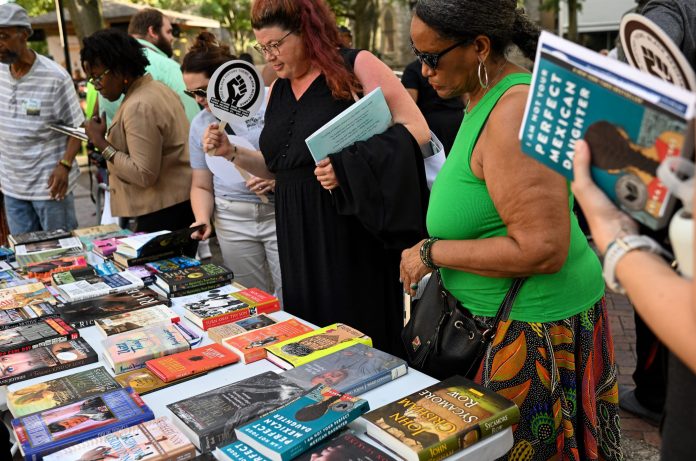Florida Faces Major Lawsuit Over School Book Bans
In a significant move against the ongoing wave of book bans in Florida, some of the country’s largest publishers, including Penguin Random House, Simon & Schuster, and Harper Collins, have joined forces with authors and parents to sue Florida education officials. This lawsuit challenges a controversial law allowing parents and local residents to limit what books are available in school libraries if they depict or describe “sexual conduct.”
Impact on Iconic Works and First Amendment Rights
The lawsuit alleges that the state law, enacted last year under House Bill 1069, has led to the removal of hundreds of books, many of which are considered literary classics. Among the books targeted are Maya Angelou’s “I Know Why the Caged Bird Sings,” Ernest Hemingway’s “For Whom the Bell Tolls,” and Alice Walker’s “The Color Purple.” The plaintiffs argue that this sweeping censorship is a violation of First Amendment rights, infringing on the freedom of speech and the right to access literature.
The Legal Battle: Challenging the Law’s Vagueness
The core of the lawsuit challenges a specific section of the bill that mandates the removal of any book that “depicts or describes sexual content” or is deemed “pornographic.” The process outlined by the law allows for parents to read the controversial passages aloud during school board meetings. If the reading is stopped due to explicit content, the book must be removed from the school library. Critics argue that the law does not properly define what constitutes “sexual content” or “pornographic,” leading to the unjust removal of many books that are far from obscene.
State’s Response and National Implications
Florida officials have dismissed the lawsuit as a “stunt,” asserting that there are no banned books in the state. Nathalia Medina, spokeswoman for the state’s Department of Education, stated, “Sexually explicit material and instruction are not suitable for schools.” However, book bans have become a central issue in the culture wars across the country, with Florida leading the surge in school book challenges. According to PEN America, Florida recorded 3,135 book bans between July 2021 and December 2023.
Plaintiffs and Their Mission
The group of plaintiffs is broad and includes prominent publishing companies, authors, and parents. Authors like Julia Alvarez, John Green, and Jodi Picoult, along with organizations like the Authors Guild, have joined the fight. The lawsuit, filed in federal court in Orlando, is not seeking to overturn the entire law but aims to reject the parts that prohibit content describing sexual conduct and the vague use of the term “pornographic.”
One parent, Judith Anne Hayes, expressed her frustration in the lawsuit, stating that she wants her child to be able to read books like Gabriel García Márquez’s “Love in the Time of Cholera” without facing stigma or unnecessary roadblocks. She, along with others, argues that the current law unfairly targets books that have been falsely branded as inappropriate.
The Broader Context: Florida’s Legislative Climate
Florida Governor Ron DeSantis, although not named in the lawsuit, has been a leading figure behind the law. His office has repeatedly denied allegations of book bans, framing the legislation as a protective measure against indoctrination. However, the wave of lawsuits and criticism suggests a growing national concern.








